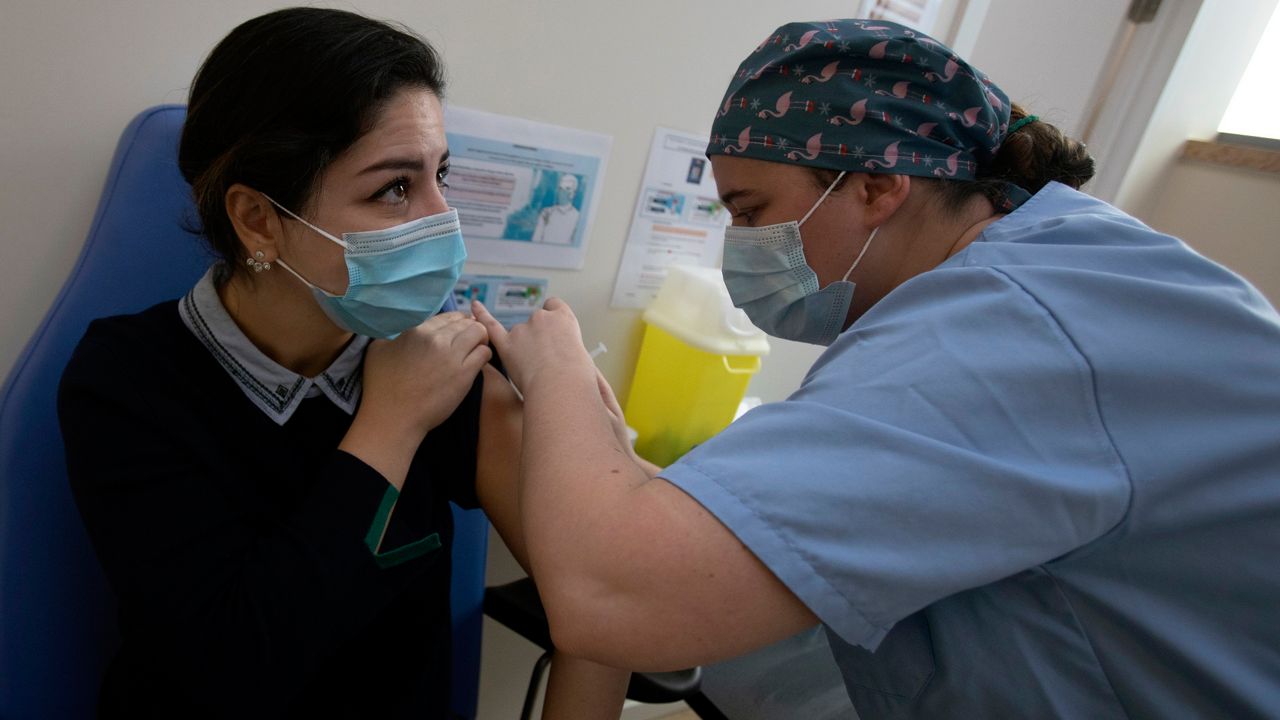When it was first announced the hurried development of the COVID-19 vaccine, many people became concerned. After all, many do know that it usually takes at least a year and a half or more to develop a vaccine.
What You Need To Know
- Some people's speculations of the vaccine mutated into conspiracy theories
- AdventHealth Tampa's Dr. Doug Ross debunks some of the more popular myths
- He also takes the time to explain how the vaccines actually work
- Get more coronavirus coverage and vaccine education here
Some people started to speculate just how safe the vaccine would be, but some of that speculation mutated into myths and conspiracy theories about the two coronavirus vaccines developed by Pfizer and Moderna.
Dr. Doug Ross, chief medical officer of AdventHealth Tampa, took the time to debunk some of the more popular myths surrounding the COVID-19 vaccine.
MYTH: Because the COVID-19 vaccine was developed so quickly, people worry about how safe it is.
FACT: Ross explained that advances in the development of the vaccines are the reasons why they were created and approved so quickly, saying that there were no short cuts when it came to the safety and validation of the vaccines.
“As a matter of fact, the vaccines have gone through the normal rigor of evaluation by the U.S. regulatory bodies,” he explained, adding, “Recently, the FDA released a report about the now more than 22 million immunized people; that confirms that the vaccines are as safe as the early scientific reports described.”
MYTH: Most vaccines contain a virus, but not the ones developed by Pfizer and Moderna. How is the COVID vaccine different from the more traditional ones?
FACT: Due to the different strategies used in the making of the two vaccines, they do not have a dead or live virus in them, Ross said.
He explained that the vaccines use the mRNA — AKA messenger RNA that carries information from the DNA to the ribosome — to tell the body to make the same little spike proteins that cover the COVID-19 virus wall. Why?
It allows the body to develop antibodies to those spikes.
“Those antibodies are ready to attack the virus should you become exposed,” he explained.
MYTH: Another popular myth is that the COVID-19 vaccine enters the cells and changes the DNA. How exactly does the vaccine work?
FACT: “The vaccines use mRNA to tell the body to manufacture the spike proteins of the virus. The mRNA is degraded (broken down) over a short period of time and so the mRNA is not permanent in the body. The mRNA also cannot be incorporated into a person’s DNA,” Ross described.
MYTH: A popular conspiracy theory is that the vaccine actually has a microchip to keep track of people.
FACT: The short answer: There are no microchips in the vaccines.
MYTH: If a person had COVID-19, they do not need the vaccine.
FACT: Not so fast, said Ross, who pointed out that many in the medical field are still uncertain how long someone who had COVID-19 is immune from getting it again.
He said there have been cases of people who had COVID-19 getting it again as little as two to three months later.
In addition, scientists believe getting vaccinated gives the body an extra source of antibodies, even to someone who already had the virus.
“These vaccines are very effective in reducing the risk of getting COVID-19 illness. Yes, you could still get COVID-19 but the odds are greatly diminished if you are vaccinated,” he warned.
MYTH: Or if they get the vaccine, they can stop wearing masks and social distance.
FACT: Ross said that people who have been vaccinated still must be vigilant for several reasons.
For one, a person is not fully immunized until three weeks after getting the vaccine.
Plus, people need to continue to wear facemasks, wash hands, social distance and avoid large crowds, he said.
“We still don’t know if you can be a silent spreader even after being vaccinated,” Ross stated.
MYTH: People are worried about the side effects of the vaccines, with some saying they are dangerous.
FACT: While at the moment, the vaccines’ side effects have been limited to what has been reported by the CDC: Pain and swelling at the injection site and fever, chills, tiredness, and a headache.
However, Ross said that even though it is unknown if there are any long-term effects, it may not be something to worry about.
“Of course, the COVID-19 vaccines have not been available for an extended period of time, so long-term effects are not yet known fully but past history of other vaccines have not shown long-term negative effects,” he explained to Spectrum Bay News 9 in an email.
MYTH: Another myth surrounding the vaccine is that it causes miscarriages or infertility.
FACT: Citing the American Society of Reproductive Medicine, Ross said that the vaccines do not cause infertility or harm pregnant women.
He went on to explain that during a natural infection, the immune system produces the same antibodies to the spike protein that the COVID-19 vaccines do.
He also added that according to research, expecting mothers who get COVID-19 do not show an increased rate of miscarriages.
Hearing about the myths and words of advice.
Ross said he has met people who believe in the myths and conspiracy theories about the vaccines.
“I have come across some people who have been influenced by these myths. I am saddened by it when I hear it but we are committed to continuing to educate the public on what we know to be fact and the science that supports it,” he assured.
However, he warned that “we’re not out of the woods yet” as he urged people to continue to wear facemasks, avoid large crowds, wash hands, and social distance from one another.
“Let’s do our part to keep each other safe,” he said.



